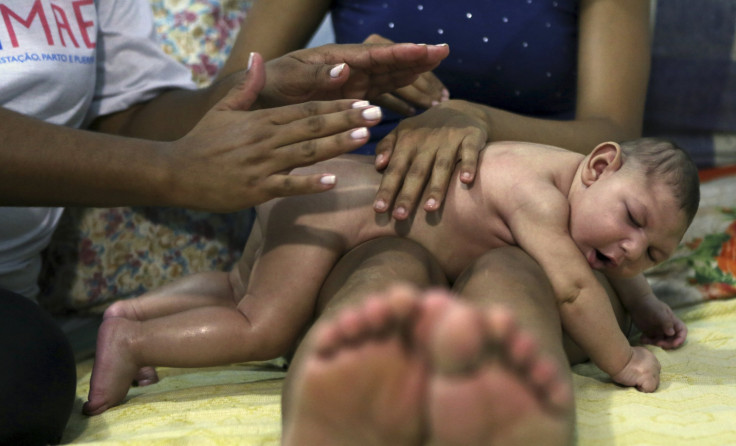Alternative Therapy Soothes Brazil Babies Suffering Defects Linked To Zika

RECIFE, Brazil (Reuters) - Daniele Santos only wanted to comfort her boy, Juan Pedro, one of Brazil's growing number of babies born with a birth defect linked to the Zika infection his mother had while pregnant.
Just 3 months old, Juan Pedro's shrill and constant crying, typical of babies born with microcephaly, drove his mother to desperation.
According to Santos, the boy's fussing was so intense it led to her husband abandoning the family.
The boy is receiving traditional care at a hospital in Recife in northeastern Brazil, the epicenter of the Zika epidemic and the capital of the state seeing most of the birth defects associated with the mosquito-borne virus.
Zika, which has spread rapidly through the Americas, has not been proven to cause microcephaly in babies, but there is growing evidence that suggests a link. The condition is defined by unusually small heads that can result in developmental problems.
Modern medicine has not been enough for Santos and many other mothers.
That is where a type of parental therapy group called "Room to be a Mother" came in to bring relief to Santos and others.
The group's instructors this month held two free workshops in Recife for the mostly impoverished mothers of babies born with birth defects related to the Zika virus, teaching natural techniques to soothe the children.
Those include a traditional Indian shantala massage for babies, using a simple sling that keeps babies tightly held to their mother's chest for comfort throughout the day, and also the use of a specially shaped bucket for warm baths meant to mimic the womb.
Santos now uses the massage, sling and bucket soaks each day.
"His crying after the massages and baths became less shrill," Santos says, noting that Juan Pedro is "much calmer."
Therapist Rozely Fontoura, who follows up with the mothers after they take the therapy classes, said the shantala massage is particularly helpful, as it works by producing endorphins and by reducing the stress hormone cortisol.
"Babies with microcephaly are generally very irritable, they are very sensitive to stimulants, they become very irritated and are difficult to calm down," she said. " So the production of (endorphins) and the reduction of cortisol helps a lot."
Brazil has said it has confirmed more than 900 cases of microcephaly, and considers most of them to be related to Zika infections in the mothers. Brazil is investigating nearly 4,300 additional suspected cases of microcephaly.
(Reporting by Thales Carneiro; Editing by Frances Kerrry)
Published by Medicaldaily.com



























